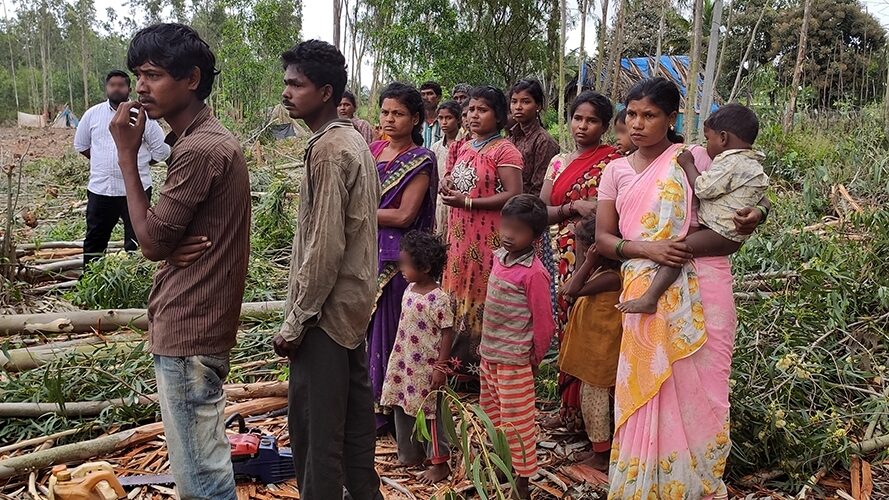Eight Families in Bondage for 6 Years - Now Free
Slavery
Earlier this month, IJM supported local authorities near Bangalore on an urgent rescue operation to free 29 people who were forced to chop wood for the last six years. The man who allegedly abused and exploited them is currently absconding from police.
These eight families—including 10 children—originally came to Bangalore six years ago to work for a different employer. After six months, the suspected owner of a wood chopping facility paid that employer 80,000 rupees (about $1,491 CAD) so the labourers would work for him. He also gave each family a payment “advance” of 40,000-60,000 rupees—which actually became a debt to repay—and promised them good work and fair wages.
For the next six years, however, this new owner began taking the families around to forested areas across Karnataka and Tamil Nadu states to chop eucalyptus trees, which are used to make scaffolding at construction sites. He moved the families every two or four weeks and forced them to work more than 13 hours a day with only short breaks for meals, and only one day off every few weeks.
Life in bondage became brutal for these families. They slept for six years in makeshift tents and ate only what they could buy with a few cents every day. None of them had ever been to school, and they could not access medical care or interact much with the outside world.
One 26-year-old labourer told IJM staff, “I often get chest pain. I requested permission from the owner to go back to my village for two months to get treatment and, though I promised to return, he did not let me go. He asked me who would do my work while I was gone.”
After confirming IJM’s investigations on the abuse these families faced, proactive government officials brought the labourers to safety on November 16 and have filed initial police reports to hold the alleged abuser accountable for his crimes.
IJM expressed gratitude for the Assistant Commissioner in this case, who led his first-ever bonded labour rescue with focus and victim sensitivity. He followed best practices for rescuing the labourers and ensured their official testimonies, health check-ups and Release Certificates—which break their false debts from the owner—were all completed in one day.
“We are appreciative of the proactive government team which took the lead in this compelling rescue operation,” says IJM Bangalore’s lead social worker. “I hope this rescue will restore these labourers to their lost identities as they begin their lives in freedom.”
The rescued families have been returned safely to their home village and will join IJM’s two-year aftercare program for bonded labour survivors, which helps them learn new life skills, get children in school, and build stable plans for the future. Police will continue searching for the suspected owner and seek to hold him accountable under India’s anti-trafficking laws.